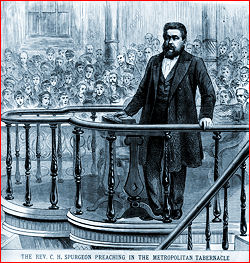Happy new year. I think it's good that we start the year facing some of these questions together.
In my previous post I broached the question of church size and trajectory. Fond as I am not of verbosity, let's cut straight to what I hope are useful guidelines, questions, and answers.
My preface to these is that they are for you and me. I'll either ignore or delete questions like "So are you saying that _____'s church is too big/small?" I want you to apply this directly to your forehead. The happiest results I am aiming at are these:
- Some leaders of churches that are big enough or oversized will conclude it's time to invest resources and personnel for planting daughter-churches in other locations. Note: "daughter churches," with their own pastoral leadership, preaching, and all.
- Some attenders of massively oversized churches will conclude that a better stewardship of their gifts would be to find churches that are under-supported, rather than remain in a church where they are redundant by a factor of fifty.
- People searching for a church will repent of their consumer mentality and look along Biblical guidelines.
- Some leaders of smaller churches will find their spirits refreshed and be encouraged to stay the course and redouble outreach efforts.
- Some attenders of smaller churches will repent of their inwardness, complacency, and indulgent laziness, and will catch fire for reaching out with the Gospel and with their church's ministry of the Word, and will permeate their local church with the investment of their gifts and time.

- What is "enough"? You know the Greek word translated "greed" or "covetousness" means simply wanting more. Can a church ministry be greedy? Are you sure that you are not erecting a monument to a gifted speaker, destined to be tomorrow's hollow, dead European cathedral, or compromised by the need to replace your current personality with an equal or greater crowd-drawer/bill-payer? This flows right into:
- Why do you need more than a total of 217 people? That's a number I've plopped out there for years as the ideal church size, a bit more than half-seriously. But really: at around that number, you're large enough that you have the resources for some serious and worthwhile ministries, and still you're at a size where everyone could know everyone, and pastors could really pastor. Why do you need to be larger? How much larger? And while I'm asking...
- Is your main talking head a pastor? Do you remember that Jesus describes a good pastor as one who knows his sheep by name, cares personally for them, is personally known by his sheep, and is willing to lay down his life for them (Jn. 10:3-5, 11-14). What percentage of the people he lectures does your speaking head know like that, serve like that? At what point of disparity do you conclude that it is no longer best either for him or them? Is he actually baptizing people he's never met, let alone heard their testimony? Which also flows right into:
- Is your main talking head amassing, or reproducing? Remember that Paul always took apprentices, and he gave them lots to do. He even "shared billing" with them in writing his epistles (cf. 1 Cor. 1:1; 2 Cor. 1:1; Phil. 1:1, etc.). He famously told Timothy, "what you have heard from me in the presence of many witnesses entrust to faithful men who will be able to teach others also" (2 Tim. 2:2). Who are your head personality's apprentices? Should he go to Jesus or a larger church today, who steps in? Which flows right into:
- Are you keen on making your church as large as it can be, or on spreading the ministry of the Word of God as broadly and deeply as you can? The latter, in my judgment, is the Biblical view (see first post and Acts' refrain). So these men your lead speaker should be apprenticing, are they regularly being sent to found other churches 10, 15, 20 and more miles from you? Are people from your congregation being called on to move and/or otherwise relocate to support these ministries?
- Are there any passages, Scriptures, subjects, or activities that you are avoiding because of the negative impact it would have on attendance/prestige/cash-flow? Do you even need me to expand on that (Acts 20:27; 1 Tim. 5:21)?

- Are you attending your church primarily for what it does for you, or for what you can do for it? Or perhaps because it actually doesn't need you to do anything because there are already 10, 30, 100 volunteers ready to do what you can do? Can you coast because it's so big? Just go, have a great time watching a famous guy talk about God, select who you spend time with and to what depth, and get back to your schedule? Are you there as a consumer... while probably deriding consumerism when it comes to people like Warren, Hybels, Furtick and so on?
- How are you investing your "talent"? Using Matthew 25:14ff., are you using yours somewhere where it's really needed and significant, or are you keeping it safe and sound because a dozen others already do it better anyway? Are churches around you struggling and scraping while yours sits atop multiple layers of redundancy? Which spirit more glorifies God and answers to the constant Biblical calls to give, stretch, sacrifice, love, extend?
- How long would it be before you were even missed?
- Do you care more about the spread of the ministry of the Word, or about you being comforted and coddled by well-stocked easy-reach shelves full o' goodness?
- What is enough? Is it possible that your equally-faithful, equally-Christ-exalting, equally-Bible-teaching ministry is not being multiplied like Pastor Famoushead simply because that's God's will for your area, or because God sees you would be tempted beyond what you're able, simply because you aren't Pastor Famoushead? Is it possible that he's up to the pressure, and you just aren't, and the size of your charge is a divine kindness to you and to them?
- Do you mistake smallness for purity? (See first post.) You shouldn't.
- Have you given up? (See first post, and 2 Tim. 1:6-8, Greek.) You mustn't.
- Have you done all you can to reach the lost in your area? You probably haven't.
- Are you setting an example of outreach for your people? You should.
- Are you setting an example of hospitality? You should.
- Have you tried to teach your folks a Biblical vision of outreach with the Word? You must.
- Are you investing in finding, encouraging, and cultivating reproducers in your fellowship? (This book is a great help.)
- While you are still relatively small, are you exploiting that very smallness to build stronger, deeper relationships with those presently under your care? Beware sacrificing the unsatisfying but potential-laden present for the elusive utopian future.
- Do you thank God that there's anybody who wants to hear you do what you love best? Because you really should.
- Are you content, or even happy, that your church does not grow despite being surrounded by lost or ill-taught and deceived souls? Would you be just as happy if your church never lost or added one person, or baptized one convert? Because you really shouldn't be (see first post). You should repent, pray earnestly, change.
- Whose job is it, primarily, to expand the witness and ministry of your church? Would your most candid response to my first question, "No, I really would like to see the pastor and other people bring in more of the right sort of person"? Or perhaps, "No, I really do hope Something does Happen, and more people happen by, wander in, and decide to stay"? After you do answer, read Romans 1 and 1 Thessalonians 1, and see if you need to revise your answer. Then read Ephesians 4:15-16, and reconsider. Leading to:
- Are you doing your job faithfully? Do you evangelize, at work and while shopping and at home? How many friends have you told about how much you love your church and why, and have you invited, and have you brought? In the last month, the last year, the last five years? Or do you imagine that's someone else's job?
- Do you look for newcomers when they actually do come, and make it your job to make them welcome and show them love? Who is Romans 12:13 addressed to, do you think?
- Is it more important to you to sit in "your" pew, or to sit with someone who could use the blessing of being shown love?
- Do you attend your church prayer meetings, and is your voice heard regularly crying out to God to use your church's ministry to save the lost and disciple the saved? Are you a subscriber to the theories of the importance of corporate prayer and of sovereign grace, while never gathering corporately to beseech God to move in sovereign grace?
- Do you do what the leaders can't do? Is the Word being preached and taught clearly, deeply, effectively, transformationally, to God's glory? Is Christ exalted in the church's priorities and ministries? Do your leaders follow Christ and love those they care for with integrity? If so, your leaders can't very well go around saying so, can they? ("Come to my church, I really preach the Word deeply and effectively!") So, do you?
(Riiight.)











































